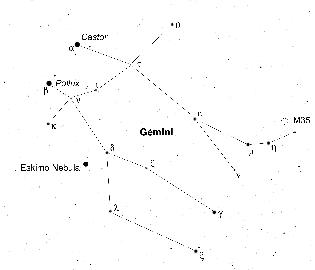HH: Your last novel, The Slightest Provocation, painted a less pretty picture of Regency England than we often get in romance. Does your upcoming The Edge of Impropriety continue in this vein?
PR: Edge is probably a lighter book, a comedy of manners and a satire of the ton.
My heroine, the arriviste Marina Wyatt, Lady Gorham, supplements a respectable but not luxurious widow's portion by writing silver fork novels (books about London high life: these things really were popular during the period, especially among middle-class strivers whose only chance to see Almack’s was in the pages of a novel).

My hero, Jasper Hedges, starts out shabbier, snobbier, more upper-class, and slightly appalled by Marina's commercial success. (Remember that Lord Byron, as a gentleman, didn't take money for "Childe Harold.") Jasper's a Cambridge classicist, an antiquarian, and (because I love finding ways for my brainy heroes to get their hands dirty) an erstwhile Mediterranean adventurer who digs up Roman coins on his family's estate.
While as for prettiness - well, the cover is certainly as pretty as any author could hope for. And this time the conflicts under the covers have largely to do with art and culture.

I like to call The Edge of Impropriety a novel of eros, esthetics, and empire. Jasper and Marina exchange their first glances among the beautiful sculpted bodies of the Elgin Marbles in the British Museum. B

I posted about my joys of discovery on this blog
Because one of the joys of being a History Hoyden is having a venue for sharing the goodies. Just as one of the joys of being me is having a husband who knows what I like sometimes before I do. (And if that knows-
HH: You’ve managed to bring down the tone of the discussion with remarkable rapidity.
PR: Probably because I’m beginning to believe that whatever I do (and no matter how much reading and research) at heart I’m an erotic writer. You wouldn’t think it to look at me, and I certainly didn’t set out to be one. But the muse has a sense of humor and it seems to have fallen to me to pour all the lonely yearnings of a bookish adolescence into my erotic imagination.
HH: So it turns out that what you write is erotica rather than, as your web site has it, “erotic historical romance.”
PR: I’m coming to think so, and to think that my historical romance-writing persona Pam Rosenthal has an awful lot in common with my evil twin Molly Weatherfield, who’s written the wild and crazy comic BDSM.
Because for me (for both me’s) no matter how graphic the writing ultimately gets, the best seductions begin with words and ideas. As in this snippet from the excerpt from Edge that’s currently on my web page:
The copper wire of [Jasper Hedges’…] spectacles had caught the light. “And what thrills [the gods…], what torments them with curiosity and desire, Lady Gorham, is the possibility of death. Mortality. The fragility of our bodies, their vulnerability to the passage of time. Human limitation is something the gods can never truly know, but they find its pathos quite beautiful. And the only way they can experience death’s pathos is through a human’s touch.”
A shiver passed through her. Followed by a flood of warmth.
I write erotica for people who find that sort of thing as hot I do and want to follow my characters upstairs after the dinner party ends.
HH. The Edge of Impropriety will be released next week, on election day. And on your own blog, Passions and Provocations, you told your readers, "if you only have time to do one hugely, critically important thing on election day… you know what that is. And it’s not rushing out to buy The Edge of Impropriety." How seriously did you intend this?
PR: Absolutely. There's nothing like being at a pivotal point in history to bring things into perspective. I’ve felt myself overwhelmed these past weeks -- by the economy, the level of
There’s something amazing about living in a moment when the stakes are so huge and the outcome so perilously unknown. Historical romance -- and to my mind all historical fiction -- trades on some opposite approaches to this issue, and so I’m seeing online discussions (like Kathrynn’s here and Janet’s at Risky Regencies) about the ways in which we turn to romance and other escapist fictions for comfort at times like this.

But on the other hand I find myself rather thrilled by the knowledge that this is not how things actually work, and that fictions and stories are our consolation for the maddeningly difficult truth -- which is that emergent human history just keeps spiraling into the unknown and unresolved. And that we have nothing but the best of ourselves to rely upon along the way.
Or at least to make us more passionate, more deeply engaged romance writers and historical novelists.
And I’d love to hear from both readers and writers about where you find yourself at this moment.
No comments:
Post a Comment